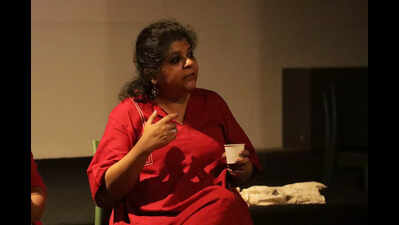ARTICLE AD BOX

PANAJI: When typewriters gave way to word processors, purists mourned the death of “real writing.” Decades later, the same anxiety now shadows artificial intelligence (AI) in creative work.
But for Arpita Das, Associate Professor of Writing at Ashoka University, this fear is misplaced.Speaking at a recent writing workshop at the Museum of Goa, Pilerne, Das drew a direct line between past and present transformations in writing technology. “When the switch from typewriters to word processors happened, a lot of people said that those who use a word processor are not real writers. Yet writers have thrived and created original work.
The same sentiment is for AI. Ultimately, if you are using it as a tool for small tasks that help you finish writing and as long as it is your own original thought and creation, there should not be a problem," she said.Ashoka University, known for its liberal arts focus, is currently drafting its institutional AI policy, with faculty members contributing to the framework. Das shared that while the university will have overarching guidelines, individual faculty members are encouraged to shape their own classroom-level AI policies.
“In the writing programme, we have decided that we cannot just wish it away nor are we going to penalise the students for using AI,” Das said. “If they are using AI to help with structuring their essay, then under the references section, they must create a new section for attributions and write which software was used to help structure the work.”The writing department has also begun experimenting with AI-integrated classroom exercises.
“We have introduced a lot of real-time mind-mapping exercises and writing assignments that use AI as part of the creative process. The goal is to cultivate awareness and ethical usage rather than resistance," she said.Turning her attention to Goa, Das described it as a “space of tremendous complexity” that is too often misunderstood or “flattened by the view of outsiders.”“Goa is not a flat canvas, it is layered. There are exciting stories that can be told. What is being played out with local languages needs to be translated and looked at. There is a goldmine of local-language non-fiction waiting to be translated.”

 2 hours ago
4
2 hours ago
4








 English (US) ·
English (US) ·